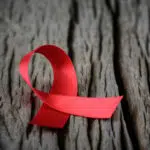Crohn’s and Colitis Awareness Week, which runs from December 1 to December 7 each year, aims to educate people about the symptoms, causes, and ways to manage Crohn’s disease and colitis. The main reason for raising awareness is because the symptoms are quite common and are easily confused with other diseases and medical problems, resulting in people not receiving the right medical treatment in time. Those afflicted face many problems relating to the gastrointestinal tract, which reduces their physical activity and overall quality of life.
History of Crohn’s and Colitis Awareness Week
Crohn’s and Colitis Awareness Week is observed to support and encourage those who are diagnosed with this disease. Crohn’s disease involves the inflammation of one’s gastrointestinal tract. Ulcerative colitis is a similar inflammatory condition that affects the colon and large intestine. Crohn’s disease and colitis are commonly known as inflammatory bowel disease.
For years, not much research was conducted on Crohn’s or colitis. English physicians Wilks and Moxon were the first ones to study colitis. Crohn’s disease was discovered by Dr. Burrill B. Crohn, Leon Ginzburg, and Gordon D. Oppenheimer. They researched 14 patients who were experiencing symptoms such as severe abdominal cramps, chronic diarrhea, and sudden weight loss. After conducting in-depth research on these symptoms, the doctors named the disease ‘regional ileitis’. The name was later changed to Crohn’s disease.
After the discovery of Crohn’s disease and colitis, much research was still needed to minimize the symptoms. During the 1950s, when a woman in her 20s named Suzanne Rosenthal experienced severe abdominal pain and fever, doctors failed to diagnose her illness. The symptoms worsened until doctors were finally able to diagnose her illness. She was suffering from Crohn’s disease and since no treatment was readily available to cure her symptoms, Suzanne, together with her husband, started an organization to create awareness about Crohn’s disease.
During the same period, a young boy named Michael was also suffering from Crohn’s disease. He and Suzanne received treatment at the Mount Sinai Hospital in New York City, and worked together to collect funds for the research and development of Crohn’s disease.
Crohn’s and Colitis Awareness Week timeline
The term ‘ulcerative colitis’ is used for the first time.
Physicians identify the symptoms of Crohn's disease.
Rosenthal is diagnosed with Crohn's disease.
Rosenthal and her husband, Irwin M. Rosenthal, establish the Crohn’s and Colitis Foundation, a non-profit organization in the U.S.
Crohn’s and Colitis Awareness Week FAQs
When is Crohn's and Colitis Awareness Week?
Crohn’s and Colitis Awareness Week is observed in December each year to support people who are diagnosed with inflammatory bowel disease and create awareness about Crohn’s disease and colitis.
Is Crohn's disease or colitis a disability?
The majority of people who suffer from Crohn’s disease or colitis do not consider it to be a disability. However, since this is a chronic disease, proper care and medication are needed to alleviate the symptoms and help people live normal lives.
What is the ribbon color for Crohn's disease?
Purple is the official ribbon color of Crohn’s disease. Wear it during Crohn’s and Colitis Awareness Week to show your support.
How to Observe Crohn’s and Colitis Awareness Week
Learn about inflammatory bowel disease (I.B.D.)
Collect facts and other useful information related to I.B.D. from the websites of organizations that help to create awareness about Crohn’s disease and colitis. Take note of the most useful information, and share it online on your social media accounts, using the hashtag #CCAwarenessWeek.
Practice yoga
Yoga is a great way to improve your digestive health and is a traditional form of exercise, which has been around for centuries. It is beneficial for both your mental and physical health. It consists of various movements and breathing techniques that help to stimulate the nervous system. It improves digestive health by eliminating stress, improving circulation, as well as movement in the gastrointestinal tract.
Participate in online events
Various live sessions and seminars are organized by hospitals, researchers, and physicians throughout the week to educate patients and caregivers about Crohn’s disease and colitis. Try to participate in such events this Crohn’s and Colitis Awareness Week. Discover what the various symptoms of I.B.D. are and learn about the various treatment methods.
5 Facts About Our Digestive Health That Will Blow Your Mind
Immunity and gut health
More than 70% of our immune system is in our gastrointestinal (G.I.) tract.
Digestive diseases statistics
Each year, over 60 million Americans suffer from gastrointestinal disorders.
Yoga for digestion
Yoga aids digestion naturally by reducing constipation, inflammation, and bloating.
Gut bacteria
More than 100 trillion bacteria live inside our GI tract.
Passing wind
On average, a person passes gas 15 times a day.
Why Crohn’s and Colitis Awareness Week is Important
It encourages people to take care of their gut health
Crohn’s and Colitis Awareness Week creates awareness about bowel health and motivates people, especially adults, to take care of their digestive health. People all around the world learn how to manage Crohn's symptoms and become motivated to make adequate dietary and lifestyle changes to prevent various digestive problems.
It creates awareness about inflammatory bowel disease (I.B.D.)
English physicians Wilks, Moxon and Dr. Burrill B. Crohn, Leon Ginzburg, and Gordon D. Oppenheimer are some of the most prominent names who have contributed to creating awareness about I.B.D. Crohn’s and Colitis Awareness Week helps to highlight the efforts of these physicians who have contributed to the research and diagnosis of I.B.D.
It educates people about different treatments to control Crohn’s disease
Crohn’s disease and colitis cannot be completely cured but their symptoms can be reduced through proper care and medication. This week helps to create awareness about these treatments.
Crohn’s and Colitis Awareness Week dates
| Year | Date | Day |
|---|---|---|
| 2025 | December 1–7 | Monday–Sunday |
| 2026 | December 1–7 | Tuesday–Monday |
| 2027 | December 1–7 | Wednesday–Tuesday |
| 2028 | December 1–7 | Friday–Thursday |
| 2029 | December 1–7 | Saturday–Friday |







































